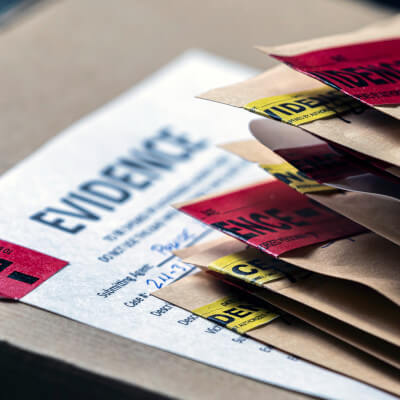If you’ve been injured in an accident in Georgia—whether it was a car crash, slip and fall, or another type of incident involving negligence—you may be entitled to compensation. But your ability to recover damages can be dramatically affected if you’re found to be partially at fault. This concept is called contributory negligence, and it plays a crucial role in personal injury law.
In Georgia, contributory negligence doesn’t bar you from recovering damages outright, but it can reduce or even eliminate your compensation depending on your share of the blame. This article explains the principles behind contributory negligence, how Georgia applies a modified version of it known as comparative negligence, and how an experienced injury lawyer can protect your legal rights.
What Is Contributory Negligence?

Under the traditional contributory negligence rule, even if the defendant was 99% responsible and the plaintiff only 1%, the plaintiff would recover nothing.
Only a few jurisdictions in the U.S. still use this harsh rule. Georgia is not one of them. Instead, Georgia uses a more balanced system known as modified comparative negligence.
Georgia’s Approach: Modified Comparative Negligence (O.C.G.A. § 51-12-33)
Under O.C.G.A. § 51-12-33, Georgia follows a modified comparative negligence rule with a 50% bar. This means:
You can recover damages if you are less than 50% at fault.
If you are 50% or more at fault, you cannot recover any compensation.
If you are partially at fault (but less than 50%), your total damages will be reduced in proportion to your percentage of fault.
Example:
Let’s say you’re awarded $100,000 in a personal injury lawsuit, but the jury finds you were 30% at fault for the accident. Your compensation will be reduced by 30%, so you would receive $70,000.
However, if you were found 50% or more responsible, you receive nothing.
Legal Implications of Contributory Negligence in Georgia Injury Claims
Understanding contributory and comparative negligence is essential if you’re seeking compensation after an accident in Georgia. Here’s how it can directly impact your case:
1. Reduced Compensation
If you are found partially responsible, your compensation is reduced. This can have major consequences in cases involving high medical bills, lost wages, and long-term disability.
2. Burden of Proof on Both Parties
Georgia negligence law allows the defendant to introduce evidence that the plaintiff’s own negligence contributed to their injuries. This shifts part of the burden onto the plaintiff to defend their own actions at the time of the incident.
3. Jury Determines Fault Allocation
In a trial, the jury is responsible for assigning a percentage of fault to each party. They determine both:
- The total amount of damages.
- How those damages should be divided based on comparative fault.
This makes it critical to present a strong case with clear evidence of liability, witness testimony, and expert analysis.
4. Insurance Adjusters Use It to Minimize Payouts
Even before a case reaches court, insurance companies use contributory negligence to reduce or deny claims. Adjusters may argue that your actions contributed to the accident—even if your fault is minimal—in an effort to lower your settlement.
Common Injury Scenarios Where Contributory Negligence Arises
Contributory negligence claims most often come up in the following types of Georgia personal injury cases:
Car Accidents
Not wearing a seatbelt may reduce your recovery even if another driver caused the crash.
Distracted driving (texting, using GPS, etc.) may be cited as partial fault.
Failure to yield, speeding, or improper lane changes can result in shared blame.
Slip and Fall Accidents
If you ignored warning signs (like a “wet floor” notice), the property owner might argue you’re partially to blame.
Wearing inappropriate footwear or not paying attention could be deemed negligent.
Pedestrian Accidents
Jaywalking or crossing against traffic signals may significantly reduce or eliminate your claim.
If the driver was speeding or intoxicated, fault may still be shared.
Workplace Injuries (When Not Covered by Workers’ Comp)
Failing to follow safety protocols could trigger comparative negligence arguments in third-party claims.
Comparative Fault and Shared Liability: Key Questions in Georgia Cases
To understand how contributory negligence could affect your claim, consider how the following questions are addressed in court:
- Did the injured person fail to act as a reasonable person would in the same situation?
- Did that failure contribute to the accident?
- How much of the total fault belongs to each party?
These questions are highly fact-sensitive and often rely on evidence such as video footage, witness statements, expert testimony, and accident reconstruction.
Why You Need an Injury Lawyer in Georgia to Navigate Contributory Negligence
If your injury case involves any possibility that you might be partly at fault, you need a skilled Georgia injury attorney on your side. Here’s why:
1. Preserve Your Right to Compensation
An experienced attorney will help minimize your assigned fault percentage. The lower your fault percentage, the higher your potential compensation.
2. Handle Insurance Tactics
Insurance companies often try to blame victims to reduce payouts. A knowledgeable attorney will challenge these attempts, gather solid evidence, and negotiate from a position of strength.
3. Build a Persuasive Case
Lawyers work with experts like accident reconstructionists, medical professionals, and financial analysts to present a comprehensive picture of how the incident happened and how it affected your life.
4. Trial Readiness
If your case goes to trial, your lawyer must convince a jury not only that the other party was negligent, but that you were less than 50% responsible. This requires skill in both legal strategy and courtroom presentation.
5. Statute of Limitations Awareness
In Georgia, the statute of limitations for most personal injury claims is two years from the date of the injury (O.C.G.A. § 9-3-33). A lawyer ensures you don’t miss critical filing deadlines that could bar your claim entirely.
How Georgia Injury Lawyers Prove You Were Not Primarily at Fault
Experienced attorneys use several tools to combat claims of contributory negligence:
- Photographic and video evidence from the scene
- Eyewitness testimony to show the other party’s fault
- Police reports and traffic citations
- Medical records documenting injury severity and treatment
- Expert analysis showing how the accident occurred
- Comparative case law to frame your situation favorably
What to Do If You Think You Might Be Partially at Fault
If you suspect you might share some blame for your injury, don’t assume you’re ineligible for compensation. Instead:
- Document everything – photos, witnesses, and written statements.
- Avoid speaking to insurance adjusters without legal counsel.
- Do not admit fault – even partial fault – in any written or verbal statement.
- Consult with a personal injury attorney as soon as possible.
Even if you made a mistake, Georgia law still allows you to recover damages if your share of the fault is less than 50%.
Don’t Let Contributory Negligence Derail Your Injury Claim
Contributory negligence in Georgia is a complex but critical factor in any injury claim. The comparative negligence rule under O.C.G.A. § 51-12-33 can reduce or eliminate your compensation if you’re found partially responsible for your injury. That’s why it’s so important not to leave your case to chance.
If you or a loved one was injured in an accident and there’s any question of shared fault, don’t delay. Contact a Georgia personal injury lawyer to evaluate your case, gather evidence, protect your rights, and fight for the maximum compensation you deserve.
More Georgia Negligence Resources
If you’d like to learn more about contributory negligence and other Georgia negligence laws, read some of our informative articles below.










